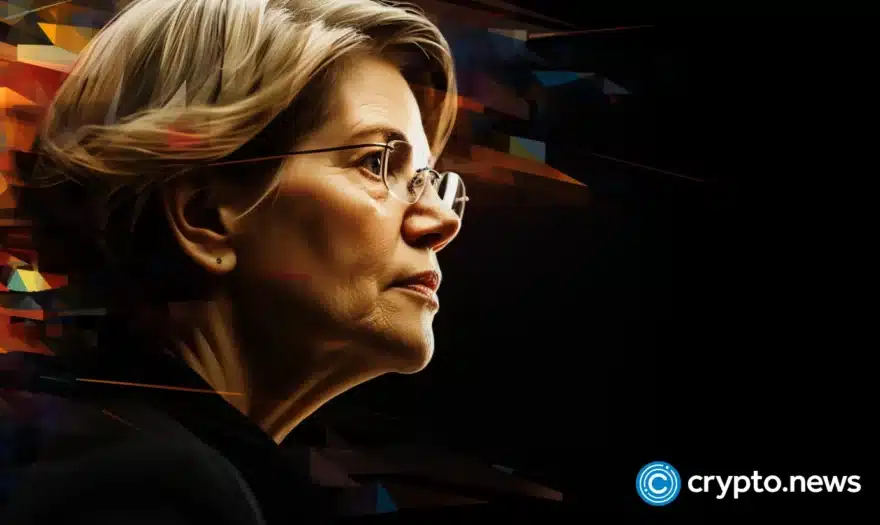How Kamala Harris can rebuild crypto bridges burned by Biden

Can Kamala Harris bridge the gap between the Democratic Party and the crypto world after Joe Biden’s impact? Read how.
Table of Contents
Lately, there have been some key developments in the U.S. political arena that are worth noting.
After Joe Biden abruptly decided to leave the presidential race and endorsed Kamala Harris, she quickly gained the support of her party’s donors, elected officials, and other leaders.
An Associated Press survey indicates that Harris now appears to have the backing of about 3,107 delegates, well above the 1,976 needed to claim the nomination.
This figure is an unofficial tally, as Democratic delegates are free to vote for the candidate of their choice when the party picks its new nominee in August.
However, Harris faces some stark challenges. During Biden’s term, the Democratic party garnered a lot of negativity from the crypto community — from regulatory overreach to misuse of power.
Now, the crypto industry is keen to know how Harris might diverge from Biden’s stance and contrast with former President and Republican nominee Donald Trump.
Meanwhile, Trump has openly declared himself a “crypto candidate” during his rallies and will speak at the Bitcoin Conference in Nashville, Tennessee, on July 25. This will be the first time a presidential candidate attends the world’s biggest annual celebration of Bitcoin (BTC).
Adding to the intrigue, the news was abuzz that Harris was also set to speak at the conference. David Bailey, CEO of the Bitcoin 2024 conference, revealed ongoing discussions with Harris’ campaign about her potential appearance at the much-awaited cryptocurrency event.
However, it has just been confirmed that Harris decided NOT to speak at the Bitcoin 2024 Conference.
Meanwhile, the decentralized prediction market Polymarket has seen a shift in the odds for the ‘Presidential Election Winner 2024,’ with Harris’s chances increasing to 36% and Trump’s decreasing to 61% from a high of 72%, though he remains the favorite.
Let’s delve deeper into the key challenges and strategic moves necessary for Harris to win over crypto voters and enhance her electoral prospects.
Trump’s crypto play and Harris’s strategic opportunity
Kamala Harris faces a unique set of challenges and opportunities as she seeks to win over the crypto community.
Rumors have it Trump might announce Bitcoin as a strategic reserve asset for the U.S. at the Bitcoin Conference on July 25, speculation sparked by Dennis Porter, co-founder of Satoshi Act.
Amid these developments, entrepreneur and Bitcoin enthusiast Mark Cuban mentioned that Harris’s team has reached out to him with several questions about crypto, signaling her interest in understanding and engaging with the industry.
Cuban also hinted that Harris might be more open to business, artificial intelligence, and crypto compared to her predecessor.
Moreover, as California’s attorney general and later a U.S. senator, she advocated for tech regulation and addressed issues like misinformation and online harassment. Her efforts on AI regulations as vice president further enhance her credibility in tech and crypto discussions.
Despite this strong foundation, financial disclosures reveal that neither Harris nor her husband have investments in the crypto sector, preferring traditional assets like Treasury bonds and emerging markets.
However, her previous campaign’s employment of Ryan Montoya, a former chief technology officer for the Sacramento Kings who pioneered Bitcoin acceptance in sports, hints at her indirect connection to the crypto world.
Montoya’s current role at the White House, though primarily focused on scheduling, suggests an awareness of crypto trends within Harris’s circle.
Adding another layer of strategy, Harris’s choice for vice president will be telling. Many of the names currently being considered, such as Pennsylvania Governor Josh Shapiro, North Carolina Governor Roy Cooper, Arizona Senator Mark Kelly, and Transportation Secretary Pete Buttigieg, are known for their pro-crypto stances.
Selecting a running mate with this outlook could signal to the crypto community that Harris is serious about building a crypto-friendly environment, further cementing her position.
Crypto community’s plea for change
Tyler Winklevoss, co-founder of Gemini and recent donor of $1 million to Trump’s campaign, didn’t hold back while sharing his criticism of Harris on X. He tweeted that Harris would need to take drastic measures to win back the crypto vote.
Winklevoss insisted that she must fire SEC Chair Gary Gensler, end SEC enforcement actions against legitimate actors, and stop Operation Chokepoint 2.0. Without these actions, Winklevoss believes Harris stands no chance.
Representative Tom Emmer from Minnesota also added to the chorus of concerns. Emmer cited worries about Harris potentially appointing Elizabeth Warren or Gary Gensler as her Treasury Secretary. He argued that their approach could harm free markets and stifle innovation.
What seems common is the collective disdain for Gensler within the crypto community. Many feel his tenure has led to several enforcement actions that have stifled the market, making him one of the most disliked figures in the crypto world.
Meanwhile, Wayne Vaughan, founder of the crypto project Tierion, voiced similar frustrations. He claimed that Democrats have spent years trying to undermine Bitcoin and suggested that Harris’s interest in speaking at the Bitcoin Conference is merely a desperate bid to gain votes and funds from pro-crypto Super PACs.
Adding a touch of optimism for Harris, Eleanor Terrett, a journalist at Fox News, cited a letter from the Digital Chamber of Commerce to Harris.
The letter has urged Harris to take a forward-looking approach to digital assets, including pro-crypto language in the Democratic Party platform, choosing a crypto-friendly running mate, and engaging with industry leaders.
The letter expressed hope that under Harris’s leadership, the Democratic Party could pivot to a more supportive stance on digital assets, aligning with the aspirations of many Americans who believe in crypto.
What lies ahead for Harris and crypto?
The rising relevance of crypto in the U.S. is clear. A Grayscale report reveals that nearly one in three American voters are more inclined to invest in Bitcoin or other cryptos following the approval of a spot Bitcoin ETF.
Additionally, 47% of American voters expect to include crypto in their investment portfolios, reflecting a critical shift in public sentiment.
Meanwhile, Donald Trump, who previously criticized crypto, has dramatically changed his stance. In 2019, he stated, “I am not a fan of Bitcoin and other cryptocurrencies, which are not money, and whose value is highly volatile and based on thin air.”
Fast forward to the present, Trump has embraced crypto on the campaign trail, proclaiming on social media that he is “very positive and open-minded about crypto companies and all things related to it.”
In June, he even met with Bitcoin miners and stated on his Truth Social account that Bitcoin mining might be “our last line of defense against a CBDC”, expressing a desire for the remaining Bitcoin to be mined in America.
Despite Trump’s newfound embrace of crypto, data indicates that crypto is a bipartisan issue. Ownership rates are nearly identical among Republicans (18%) and Democrats (19%), suggesting that crypto could become a unifying factor in American politics, transcending traditional party lines.
The Biden administration has faced extreme criticism for its handling of crypto regulation. The prolonged Ripple vs. SEC case, aggressive actions against Coinbase and other exchanges, and the broad classification of all crypto assets except Bitcoin as securities have created a hostile environment for crypto innovation.
The administration has now attempted to rectify these issues by approving spot ETH ETFs, indirectly recognizing them as commodities.
Harris has a unique opportunity to correct these missteps and enhance the Democratic Party’s appeal to the crypto community. By addressing the industry’s concerns and adopting a more crypto-friendly stance, she can attract a large voter base.
The crypto industry has already outlined its suggestions, and it remains to be seen how Harris will respond. If she can effectively communicate her stance on crypto and propose tangible actions, she can win over this influential voter bloc.
Regardless of the outcome of the presidential elections, it seems likely that crypto is going to win.

















